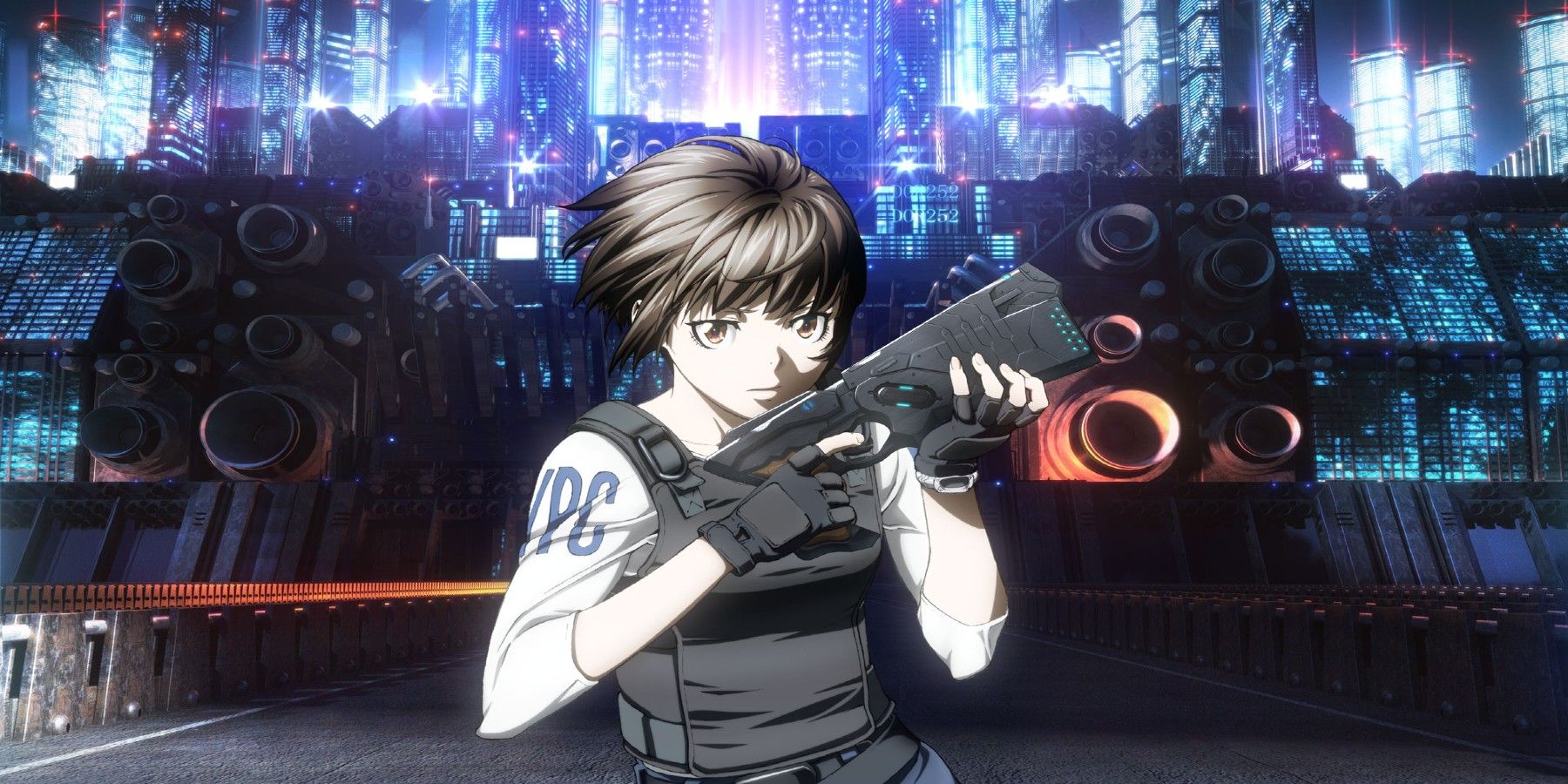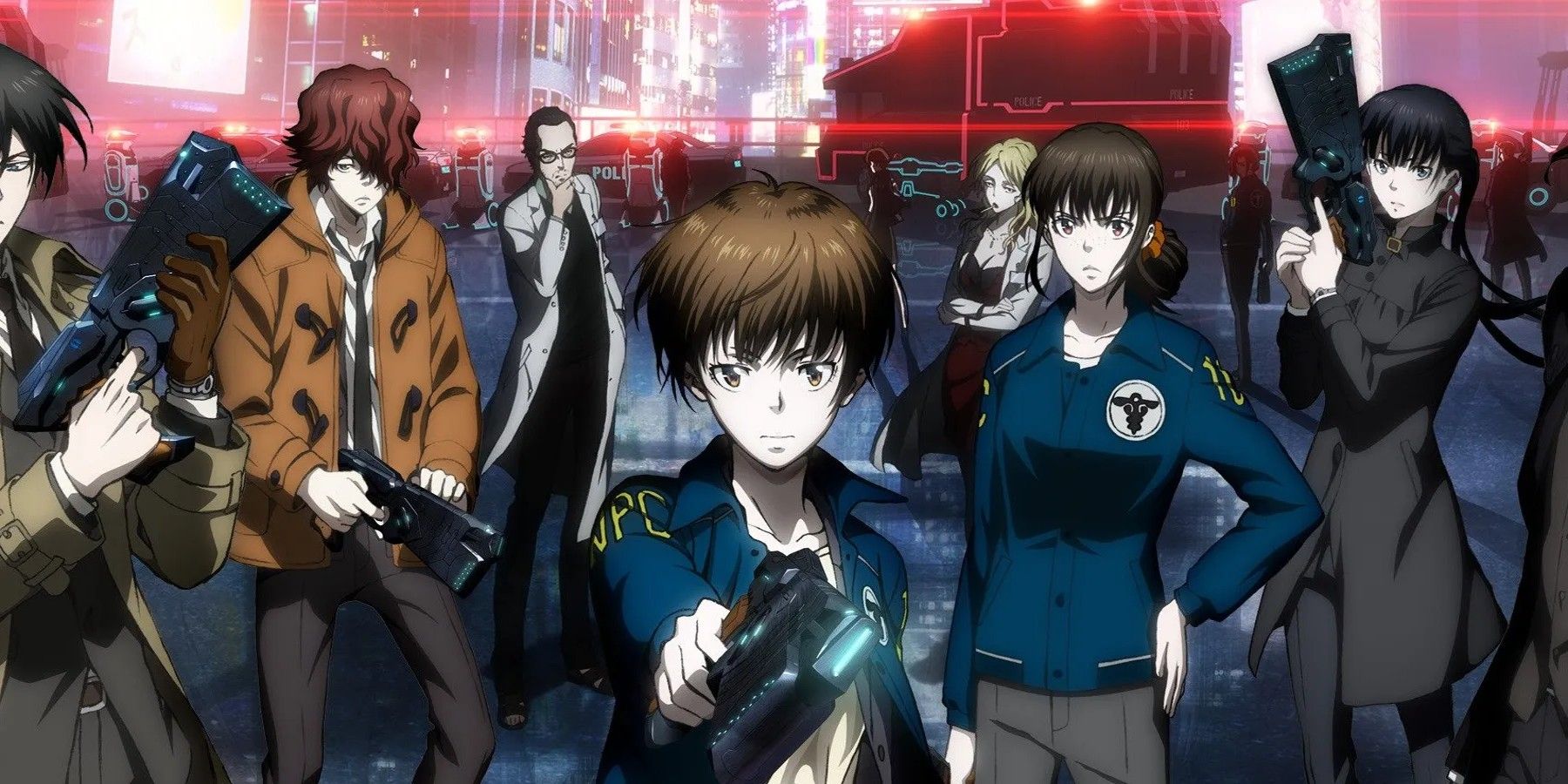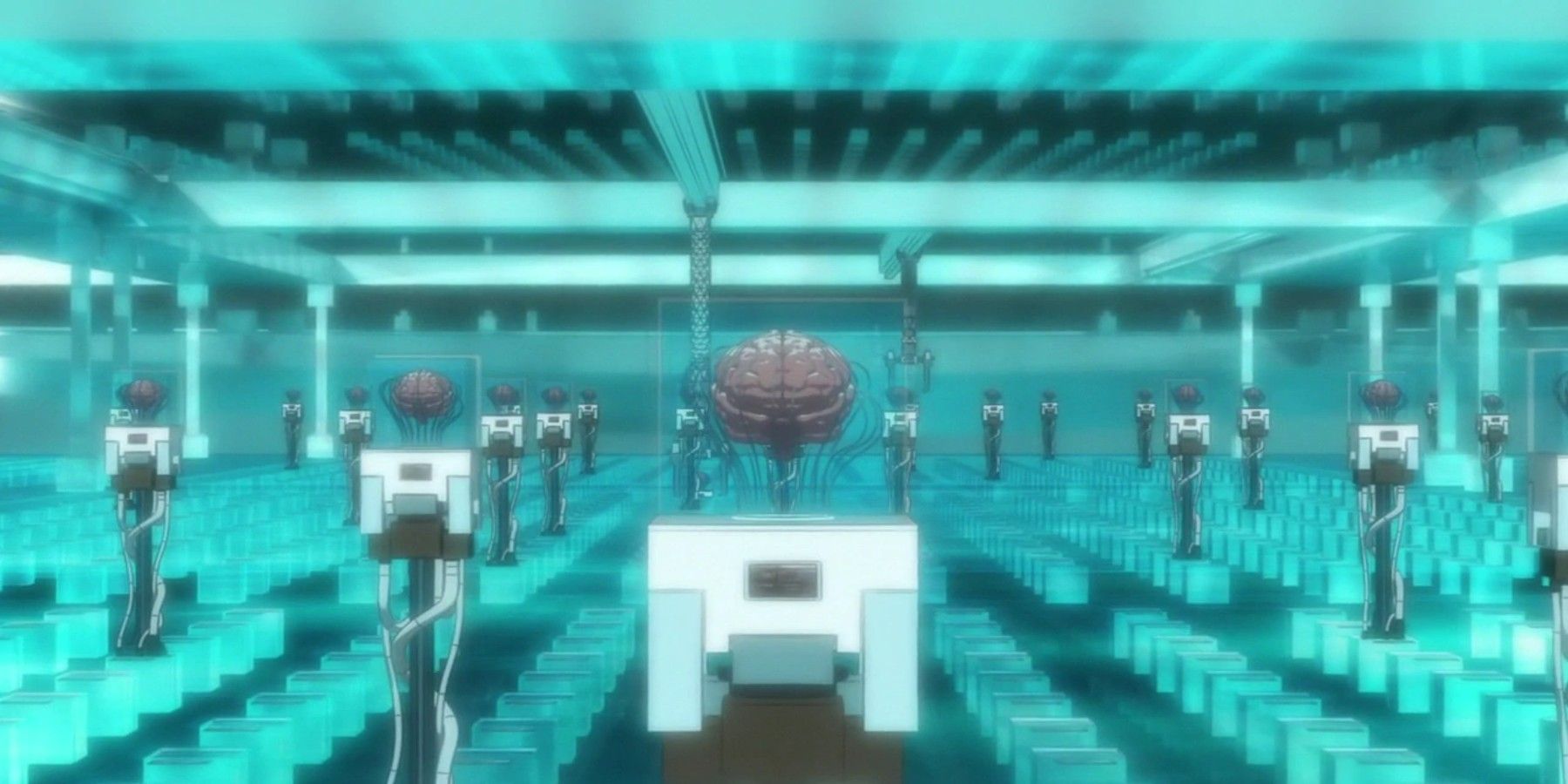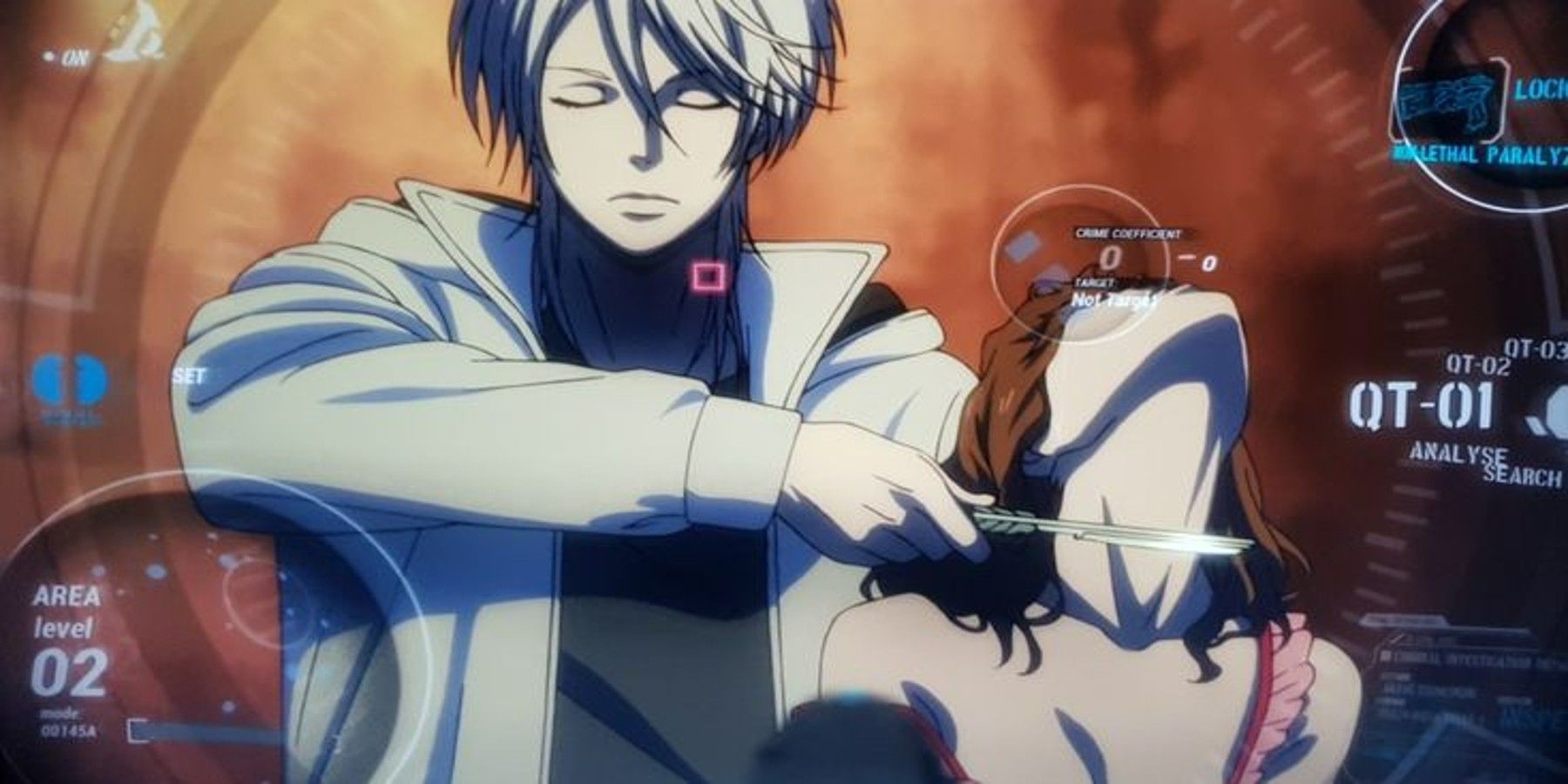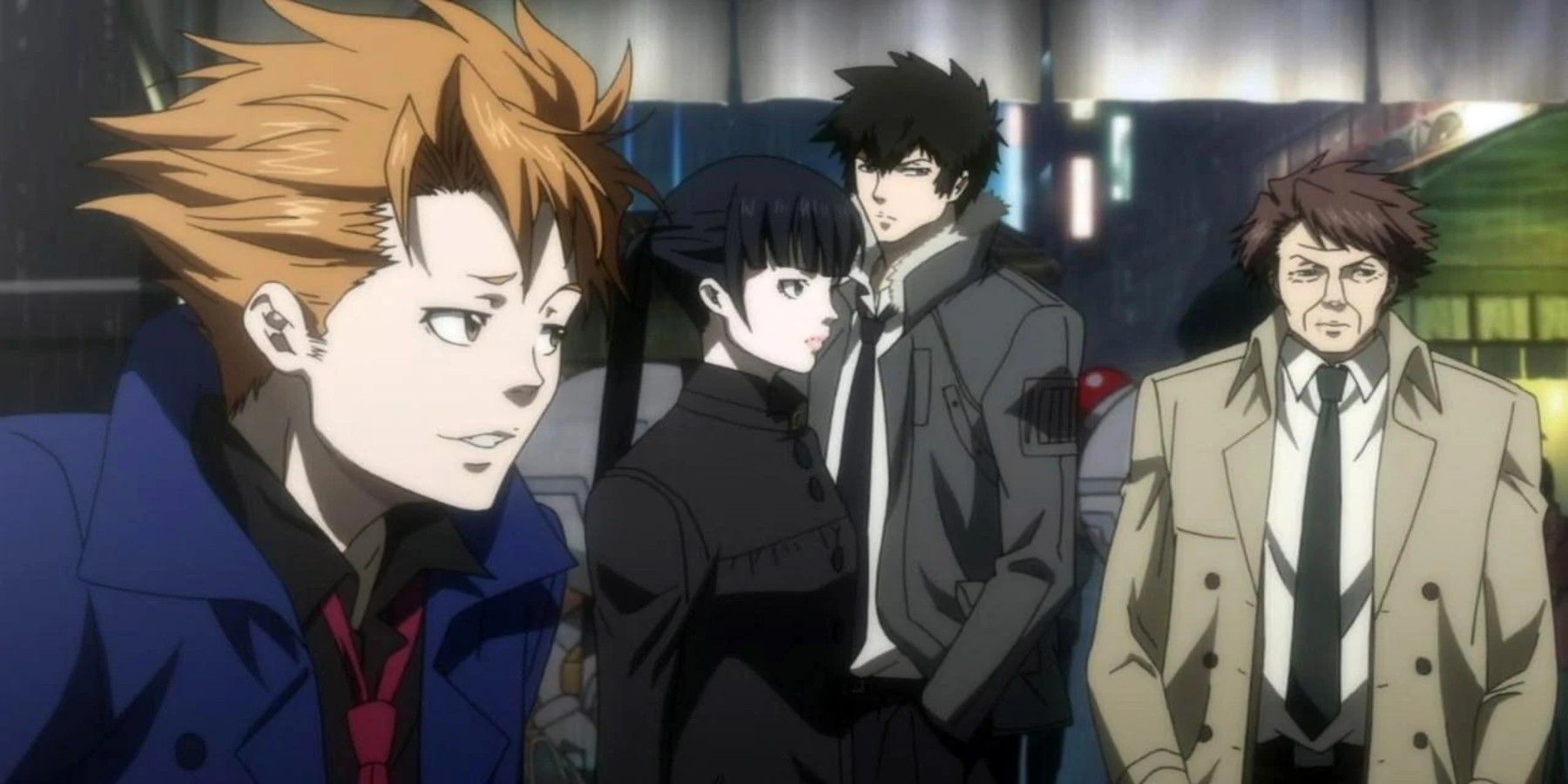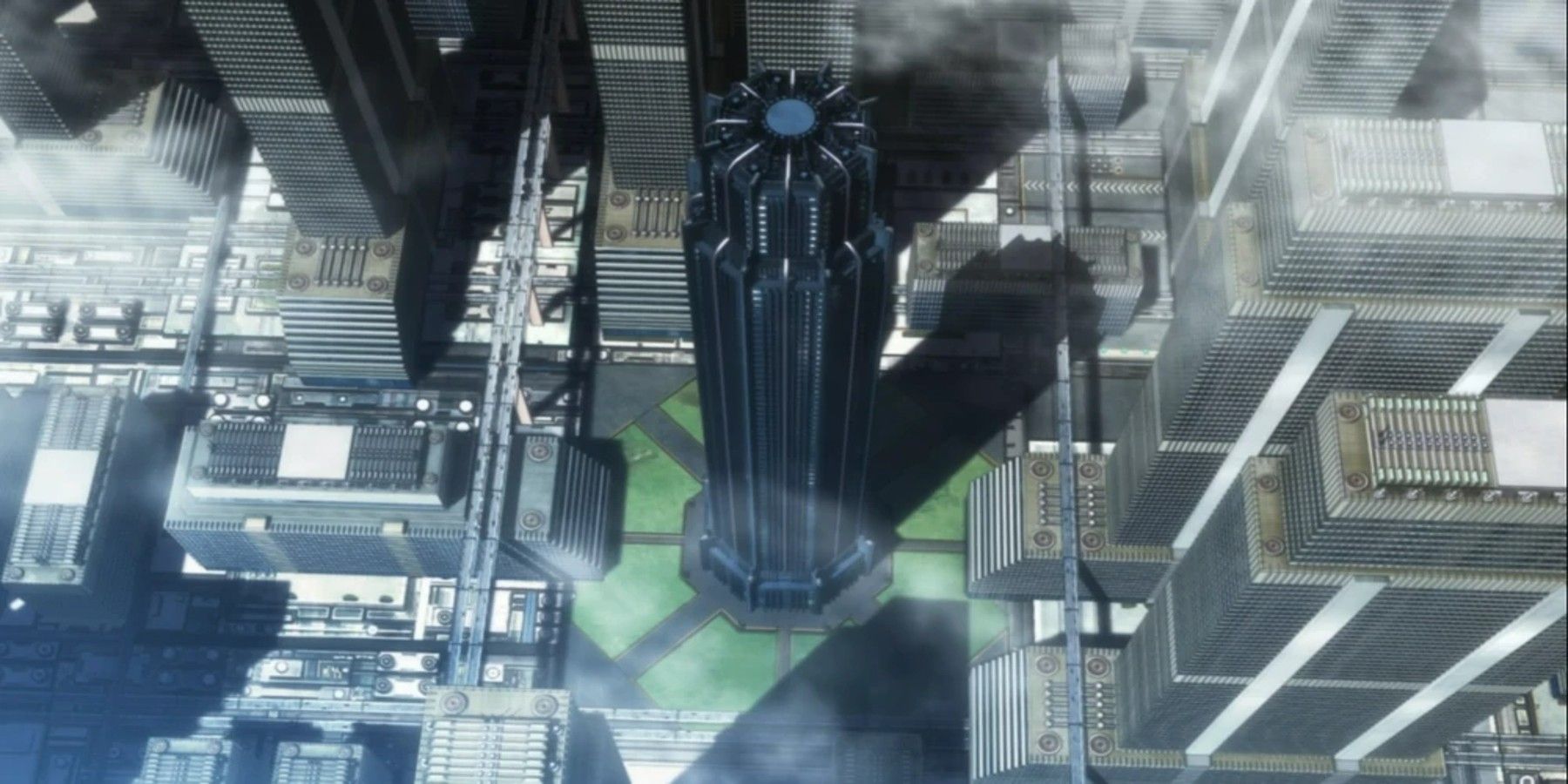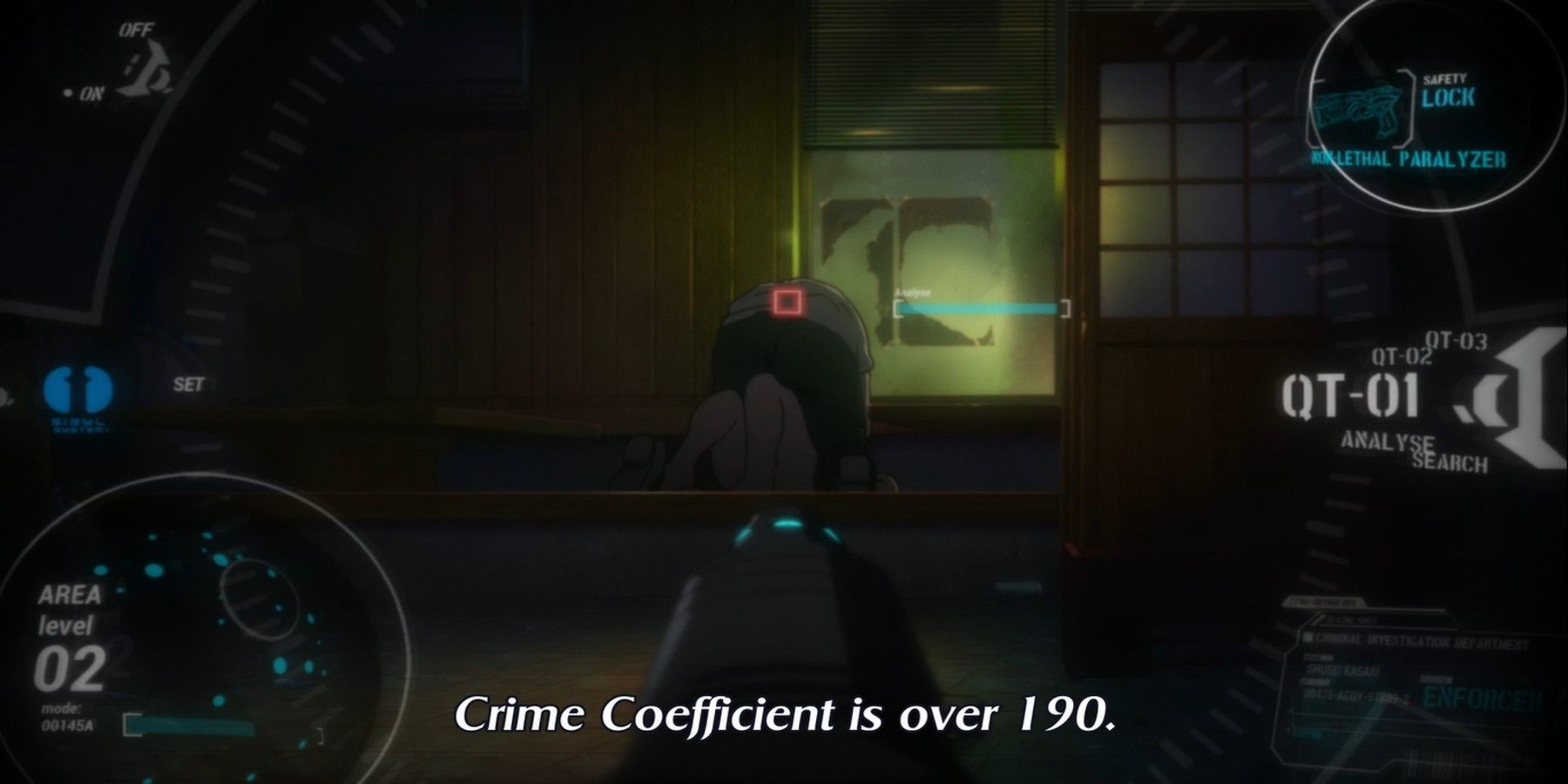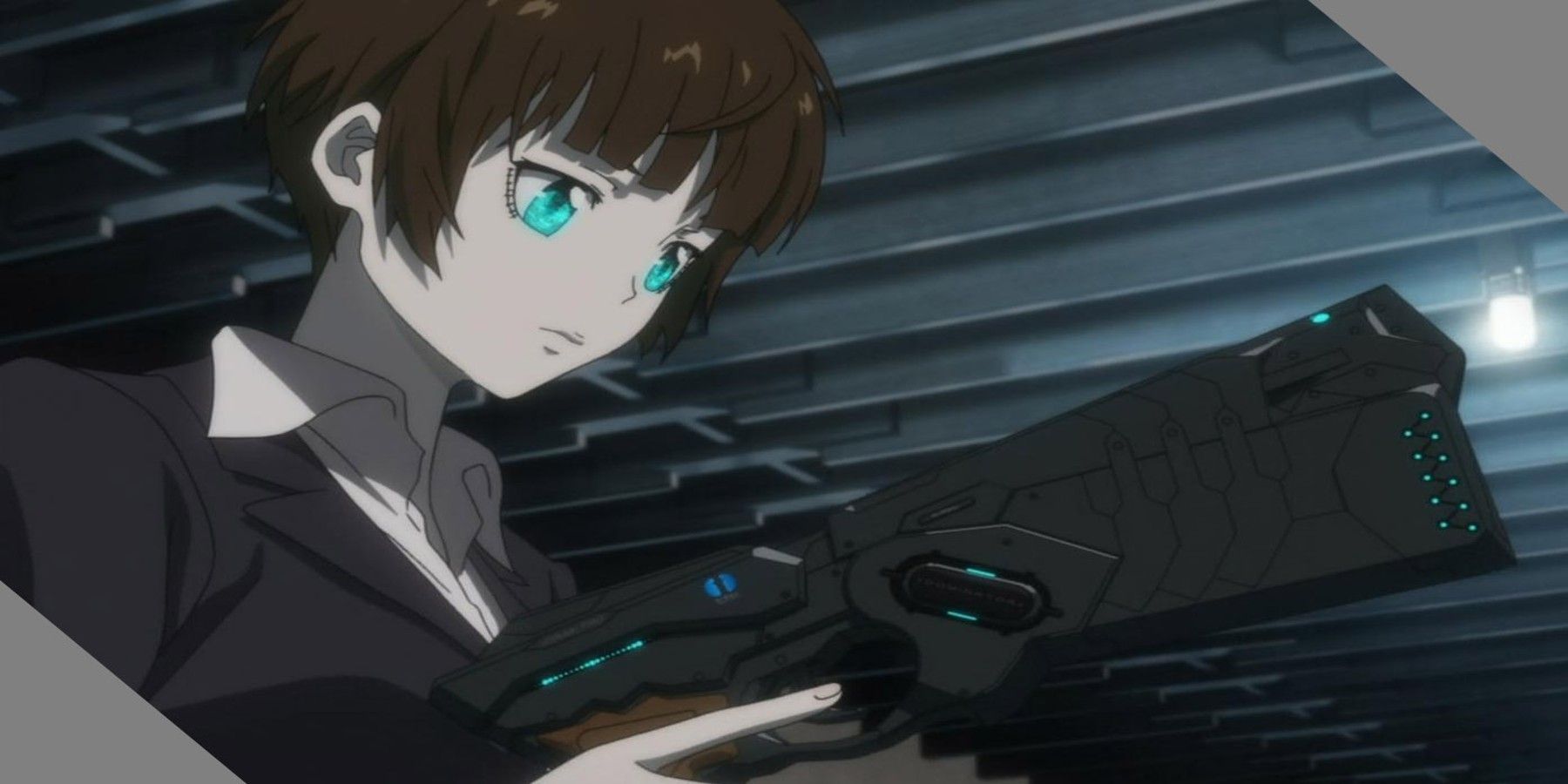Throughout human history, philosophers have posed countless questions concerning the meaning behind reality, morality, and rationality. From western philosophers such as Plato and Aristotle to eastern philosophers like Siddhārtha Gautama and Confucius, whole schools of thought and followers of these philosophies have emerged. Modern-day philosophers and creators are no different. They, too, seek answers to some of the world's most complex topics.
Psycho-Pass, a cyberpunk psychological thriller anime series, released in 2012 combines the philosophies of the past with the fears of the future. Although this anime series integrates the ideas of many philosophies and pieces of literature, George Orwell's 1984 shines a light on the story more so than the others. From the Sybil System to Big Brother and the Enforcers to the Thought Police, there are many similarities shared between them. Not everything is the same, however, as certain features remain distinct including the type of government and the form of the future.
Psycho-Pass
Psycho-Pass follows the story of Akane Tsunemori, who is a recent graduate working at the Criminal Investigation Department of the Ministry of Wealth's Public Safety Bureau. Joining CID Division 01, she is paired with a fellow Inspector, Nobuchika Ginoza. During her first day on the job, she's called to the scene where a hostage scenario is happening. With no time to explain, Inspector Ginoza tells her to train while working in the field. She meets several Enforcers, who are criminals that couldn't successfully rehabilitate into civil society.
Swapping from a passive to an active actor throughout the events in the first season, Akane is depicted as a wholly moral character. Having a clear grasp of what society needs versus what she wants, she's able to weigh and balance personal morality against the society's structure which was artificially created by the Sibyl System. Later on in the series, Joshu Kasei, a puppet of the system, shows her the Sibyl System's true form that operates underground the main building of the Public Safety Bureau: A system that is operated by the brains of criminally-asymptomatic people.
1984
What is a philosophical discussion without George Orwell's totalitarian take on the future, 1984? Published in 1949 after the aftermath of World War II, 1984 follows the story of Winston Smith, a 39-year-old office man who spends his days working in the Ministry of Truth falsifying history one alteration, deletion, and addition at a time. Fed up with his mundane life which takes a heavy toll on his morality, he seeks to resist and escape with the help of The Brotherhood. The Brotherhood is an organization that follows the teachings of the resistance leader, Emmanuel Goldstein.
Discovering true love, making new friends, and finding his purpose, Winston Smith's monotonous and depressing life takes a full 180 turn toward a future filled with freedom and happiness. However, this illusion was never meant to last. O'Brien and other members of The Brotherhood turn out to be traitors who created a fake rebellion group to weed out the weak links in the system. Not only are Winston and his lover separated, but they are also brutally tortured.
Difference: Utopia vs. Dystopia
Psycho-Pass is set in a Utopian society that envisions a perfect society run by a perfect system. Under normal circumstances, the Sibyl System would never face scrutiny, since the members of society are not only content with the ways that their lives are directed but also almost exclusively rely on the system to make every decision for them. From choosing a career path to a clothing outfit, the system takes care of everything so much so that they don't seem to realize or want to realize how much of their human autonomy has been stolen from them.
1984, on the other hand, is set in a Dystopian society where the Party rules with an iron fist and a Big Brother. Fear, not comfort, is the driving force behind the loyalty of the members of society. Any accidental slip-up could cause erasure or torture by the hands of the Thought Police. Unlike Psycho-Pass, where the system was created to realize the mentality of one for all, 1984 does the opposite enforcing the mentality of all for one.
Similarity: The Sybil System & Big Brother
Society's greatest creation, The Sibyl System, is revered as a god. Thought to be a miraculous technological creation, the citizens of Tokyo, Japan are none the wiser that the decision-makers in their lives are criminals in disguise. The Sibyl System, during the latter half of the first season, is revealed to Akane as a hive-mind system that extracts the living brains of criminally-asymptomatic citizens and adds them to their collection in an underground factory. Using their brain power and their personal experiences, they uncover other criminals who are similar-minded to them.
Big Brother, the worshiped figure in 1984, fulfills a similar role but in a different light. The key phrase on his poster, after all, is "Big Brother is watching you." While some citizens may find this charming, as it relates to a sense of safety and security by someone akin to a family member, others might find the message to be threatening and oppressive. Later in the book, Big Brother is revealed to be both a form of propaganda and a symbol of totalitarianism.
Difference: Utilitarianism vs. Totalitarianism
The core philosophy behind Psycho-Pass is Utilitarianism:
In normative ethics, [it is] a tradition stemming from the late 18th- and 19th-century English philosophers and economists Jeremy Bentham and John Stuart Mill according to which an action (or type of action) is right if it tends to promote happiness or pleasure and wrong if it tends to produce unhappiness or pain—not just for the performer of the action but also for everyone else affected by it.
To summarize, the Utilitarianism that exists in Psycho-Pass is all about the many over the few. As long as the majority is satisfied, then the struggles of the individual are overlooked or silenced. Threats to the system are also ruthlessly purged. Even though at its core the Sibyl System is fundamentally and morally wrong, since it serves a greater purpose as a guide to society, it is allowed to stay active. Although Akane believes that humans should eventually regain their sense of autonomy from the system, she is also hyper-aware that they currently cannot function without it.
The system is so thoroughly ingrained into their psychology that forcibly removing it will have harmful and destructive consequences. For example, there is a scene in the series where a woman is attacked in the middle of a busy street. Since crime is so low, the bystanders don't know how to react and end up all idly standing around and watching her be brutalized thinking that the system will take care of it. As a result of this unhealthy reliance on the system, stress levels in any area inevitably spike when there is a disruption that the Sibyl System cannot immediately resolve.
The core philosophy behind 1984 is Totalitarianism:
A form of government that attempts to assert total control over the lives of its citizens. It is characterized by strong central rule that attempts to control and direct all aspects of individual life through coercion and repression. It does not permit individual freedom.
To summarize, the Totalitarianism that exists in 1984 is all about the few over the many. To maintain absolute authority over the country, the central government uses any form of fear and repression tactic to strip away any sense of personal freedom or individual autonomy from its citizens. Therefore, there is no reverence for the system. Instead, there is a crippling fear that keeps the citizens in line as anyone could be a spy including their own family members.
The citizens, unfortunately, are just mindless tools that are forced to do the dirty work of the central government. From rewriting history to torturing traitors, Winston Smith and every other citizen in the story live a dreary and dark life. While Psycho-Pass and 1984 share a scarring history and a centralized system, their goals are significantly different. At least in Psycho-Pass, fear isn't the controlling factor behind the adherence to the system.
Similarity: The Enforcers & The Thought Police
The Enforcers are criminals who work in the Criminal Investigation Department of the Ministry of Welfare's Public Safety Bureau. They are each assigned to a Division with two Inspectors who act as their leashes and their executioners. Most of the Enforcers decide to work as the dogs of the Public Safety Bureau in exchange for access to the amenities at the headquarters and the thrills of hunting criminals. Inspectors and Enforcers both use the Sibyl System's primary punishment weapon: Dominators.
The Thought Police are also enforcers, but the criminals that they arrest are usually culpable of Thoughtcrimes rather than physical crimes like kidnappings, robberies, and assaults. Through the Telescreens which are set up in each home, the Thought Police monitor them trying to see if anyone harbors negative emotions toward the Party. Arrests are made upon speculation of a Thoughtcrime or if they receive a report by one of their internal spies. No matter the age, every citizen could potentially be a spy for them. That's what makes them so terrifying.
Difference: The Ministry of Welfare vs. The Ministry of Truth
The Ministry of Welfare's Public Safety Bureau in Psycho-Pass is a branch of the Japanese government. From punishing criminals through the Criminal Investigation Bureau to the protection of the people, this branch deals with any problems regarding the public. The Chief of the Public Safety Bureau, Joshu Kasei, is a no-funny-business type of person who emphasizes loyalty to the system while also rewarding good deeds that serve society.
The Ministry of Truth in 1984 is one of the four Ministries in Oceania. The Ministry's main mission is to alter the truth to be what the Party wants it to be. The motto for the Ministry of Truth is: War is Peace; Freedom is Slavery; Ignorance is Strength. They are also responsible for the creation of the new language, Newspeak. History is rewritten and regurgitated in a new form to reshape the world in the right and proper way of the Party. Unlike in Psycho-Pass, this Ministry is solely meant to deceive and control the public rather than to protect the peace.
Similarity: Crime Coefficients & Thoughtcrimes
Crime Coefficients are used to determine the criminality of a person. Using a complex psychological process, each person is assigned a Crime Coefficient number which predicts their propensity to commit a crime. That way, crimes can be predicted prior to an actual attack or offense taking place. Depending on how high the number is, the Dominator, the weapon of the CID, changes forms and can at a minimum tranquilize a target or eliminate them.
Crime Coefficients, however, are not all-powerful as can be seen in the case of the major antagonists in the first two seasons: Makishima Shogo and Kirito Kamui. Both are criminally asymptomatic and cannot be tracked by the system. Instead of the number that should be shown when pointing a Dominator at them, their scores always stay at zero.
The ruthlessness of the system in Psycho-Pass is similar to the Thoughtcrimes in 1984. Just thinking one negative thought toward the Party results in committing a Thoughtcrime which comes with a punishment worse than death. Thoughtcrimes are not something that can easily be subdued or controlled, so they are even harder to avoid. Like Crime Coefficients, Thoughtcrimes can be involuntary. Either way, the thought or score results in an arrest.
Difference: Rehabilitation Centers vs. The Ministry of Love
One smaller detail that Psycho-Pass shows is the center where criminals are reformed and rehabilitated. Rehabilitation centers are filled with people whose Crime Coefficients are too high for normal society but too low to be disposed of by the Dominators. Psychological treatments and therapy sessions are provided and a generally peaceful but solitary lifestyle is promoted and protected within these walls. Rehabilitation is possible as can be seen by the victim of the hostage case who receives psychological treatment and leaves with a lower Crime Coefficient.
The Ministry of Love which is featured in the final section of 1984 is nothing more than a brainwashing facTorder to weed out the weakness of the traitors such as sexual lust and rebellious thoughts, they are trapped in different Rooms, where they are tortured every day. Winston Smith, the main character, goes through this torture. For him, he is subjected to having his face stuck in a cage with rats. By the end of the book, he betrays his love and kills his hope.
Similarity: Scanners & Telescreens
The Psycho-Pass Scanners shown in the story are integrated into society as acceptable security measures meant to promote peace and safety. As this is the case, scanners exist everywhere essentially creating a surveillance society. Everything from security robots to lamplights have scanners attached to them, and the data drawn from them are sent back to the CID to be monitored and to be addressed by analysts. Scanners are inescapable.
The Telescreens in 1984 serve the same function; however, they are a tad more intrusive than the scanners. Installed in every house, building, and bedroom, these Telescreens are the main mode in which the Thought Police monitors them. Nothing is left to chance. Not even the most private parts of their lives. For example, the rented room that Winston and Julia use as the meeting place for their tryst is later revealed to have a Telescreen hidden in the walls.
While the stories of Psycho-Pass and 1984 tell different tales, the similarities that they both share do speak to an audience of anime and literature lovers looking for further meaning in their entertainment. Philosophy, whether right in the viewer's face or not, is an essential part of life that is displayed in many modes of entertainment from movies to TV series to books. After this in-depth analysis of the similarities and differences between these two works, the audience may start to recall certain scenes from a film or book that had more philosophical meanings beneath the surface.
Source(s): Book Analysis 1, Book Analysis 2, Book Analysis 3, Book Analysis 4, Book Analysis 5, Britannica 1, & Britannica 2.

